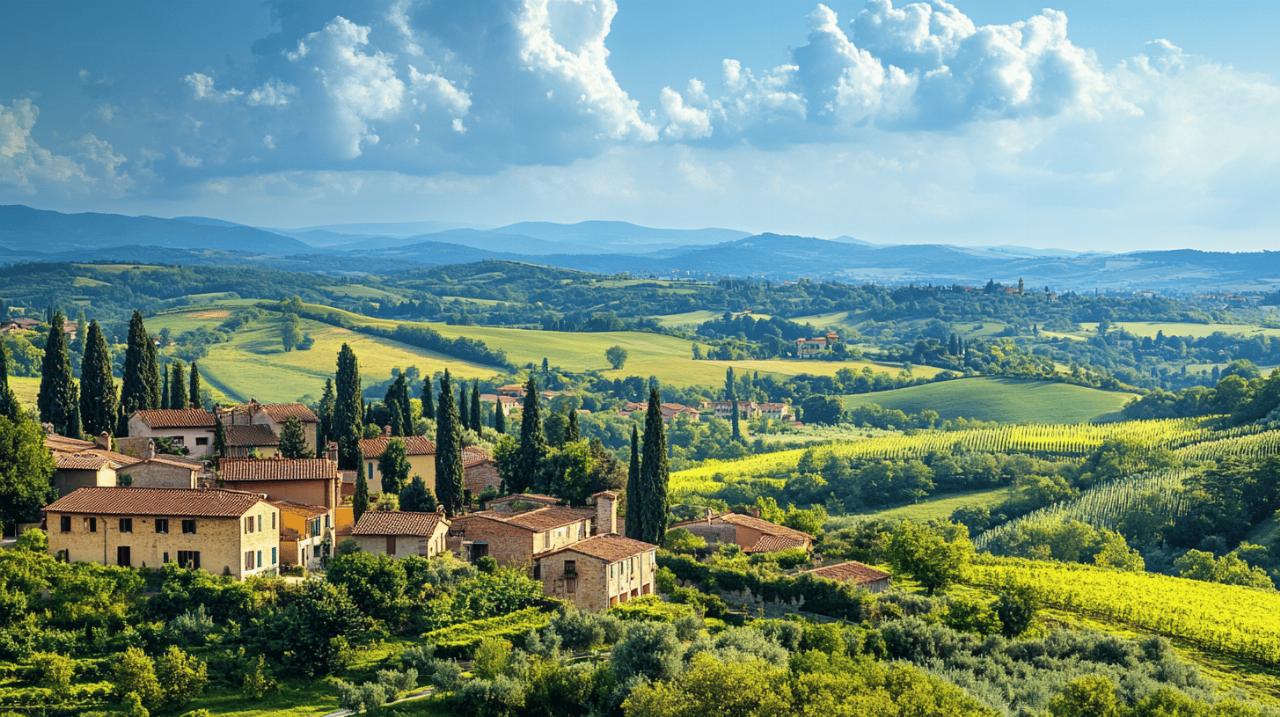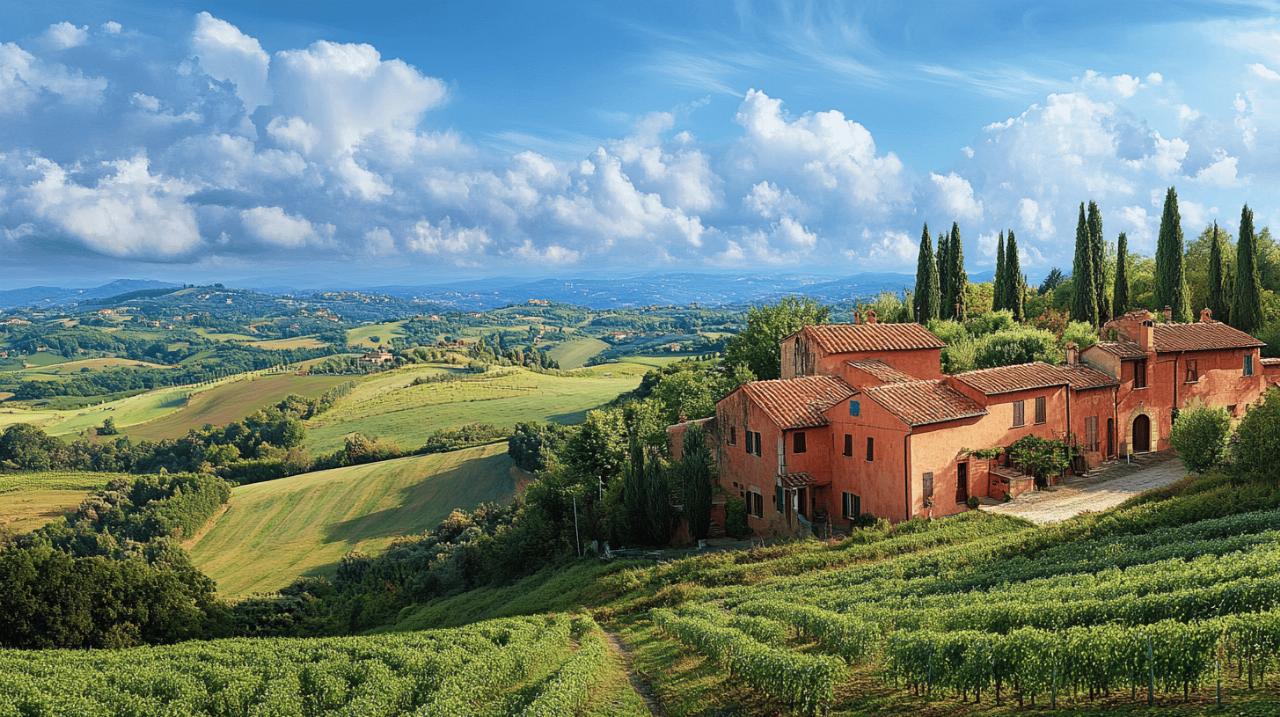Exploring european real estate trends: from italian bargain homes to french agricultural land

The European real estate landscape offers a fascinating array of investment opportunities, from the picturesque villages of Italy to the verdant farmlands of France. Recent years have witnessed significant shifts in property trends across these regions, creating unique prospects for international investors. Understanding these evolving markets requires insight into both local conditions and global investment principles that influence property values and potential returns.
Italian bargain property market
Italy's property market has captured global attention with its remarkably affordable options. The Domus agency has been tracking these developments closely, noting that the famous 'houses for 1 euro' scheme launched in 2017 has transformed real estate dynamics in several Italian regions. This initiative represents a creative solution to rural depopulation while offering international investors an unprecedented entry point into the European property market.
The Rise of €1 Homes in Rural Italian Villages
The €1 homes phenomenon has spread across numerous Italian villages facing population decline. Unlike traditional real estate investments suggested by global citizenship advisors such as Nomad Capitalist, these properties offer a different value proposition. While they require significant renovation, they provide an authentic connection to Italian culture and lifestyle that cannot be replicated in emerging markets like Tbilisi or Phnom Penh. The initial investment may be minimal, but potential buyers should be prepared for substantial renovation costs and navigating local regulations regarding property restoration.
Many international investors find the combination of affordability and cultural richness compelling, despite warnings about substandard property values or complex tax implications. The key to successful investment in these properties lies in understanding local building codes and establishing relationships with reputable contractors who can navigate the renovation process. Property tax considerations also play a crucial role in the overall investment calculation, particularly for non-residents.
Investment opportunities in italian coastal properties
Beyond the €1 homes in inland villages, Italy's coastal regions present another category of attractive investment opportunities. These properties typically command higher initial prices but offer stronger potential for rental income and capital appreciation. The combination of Mediterranean climate, historical significance, and tourism appeal creates a resilient market even during economic fluctuations.
International investment in these areas requires careful consideration of legal protection mechanisms in property sales, as highlighted by recent Domus agency reports. Foreign investors must navigate specific regulations regarding offshore banking relationships and tax obligations. The comprehensive approach to such investments should include strategic tax reduction planning and consideration of how property ownership integrates with broader international investment portfolios.
French agricultural land investment
 Shifting focus to France, agricultural land presents a compelling alternative investment category that differs significantly from residential real estate. Farmland investments offer stability, inflation protection, and potential for multiple revenue streams through agricultural operations or leasing arrangements. Recent reports from Domus indicate evolving trends in French farmland prices that merit attention from serious investors.
Shifting focus to France, agricultural land presents a compelling alternative investment category that differs significantly from residential real estate. Farmland investments offer stability, inflation protection, and potential for multiple revenue streams through agricultural operations or leasing arrangements. Recent reports from Domus indicate evolving trends in French farmland prices that merit attention from serious investors.
Regional variations in french farmland values
French agricultural land values exhibit remarkable regional variations influenced by soil quality, agricultural subsidies, proximity to major cities, and local economic conditions. The most productive regions command premium prices, while more remote areas offer better value for those willing to invest in long-term agricultural development. Understanding these regional dynamics is essential for making informed investment decisions.
The legal framework for agricultural land ownership in France includes specific protections designed to maintain farming as a viable profession. These regulations can affect non-French investors, potentially requiring partnership with local agricultural operators or establishment of French company formation structures. Such considerations must be integrated into the investment strategy, particularly for those approaching farmland as part of a global citizenship or residence options portfolio.
Vineyard acquisition trends across french wine regions
Perhaps no agricultural investment captures the imagination quite like French vineyards. These properties represent both working agricultural operations and prestigious lifestyle investments. The market for vineyard acquisitions has evolved significantly in recent years, with increasing interest from international investors seeking both financial returns and the prestige associated with wine production.
Investment in French wine regions varies dramatically by appellation, with renowned areas like Burgundy and Bordeaux commanding extraordinary premiums compared to emerging wine regions. Beyond purchase price, prospective vineyard owners must consider operational costs, labor availability, and climate change impacts on wine production. The complete investment analysis should incorporate mortgage considerations, insurance services requirements, and potential passport index implications for non-EU investors seeking to actively manage their agricultural holdings.
For those intrigued by European real estate opportunities but concerned about direct management responsibilities, various property services exist to facilitate remote ownership. These range from complete renovation management for Italian bargain properties to comprehensive agricultural operation services for French farmland investments. The evolving European property landscape continues to offer diverse options for wealth diversification through real estate, provided investors approach these markets with appropriate due diligence and local expertise.












